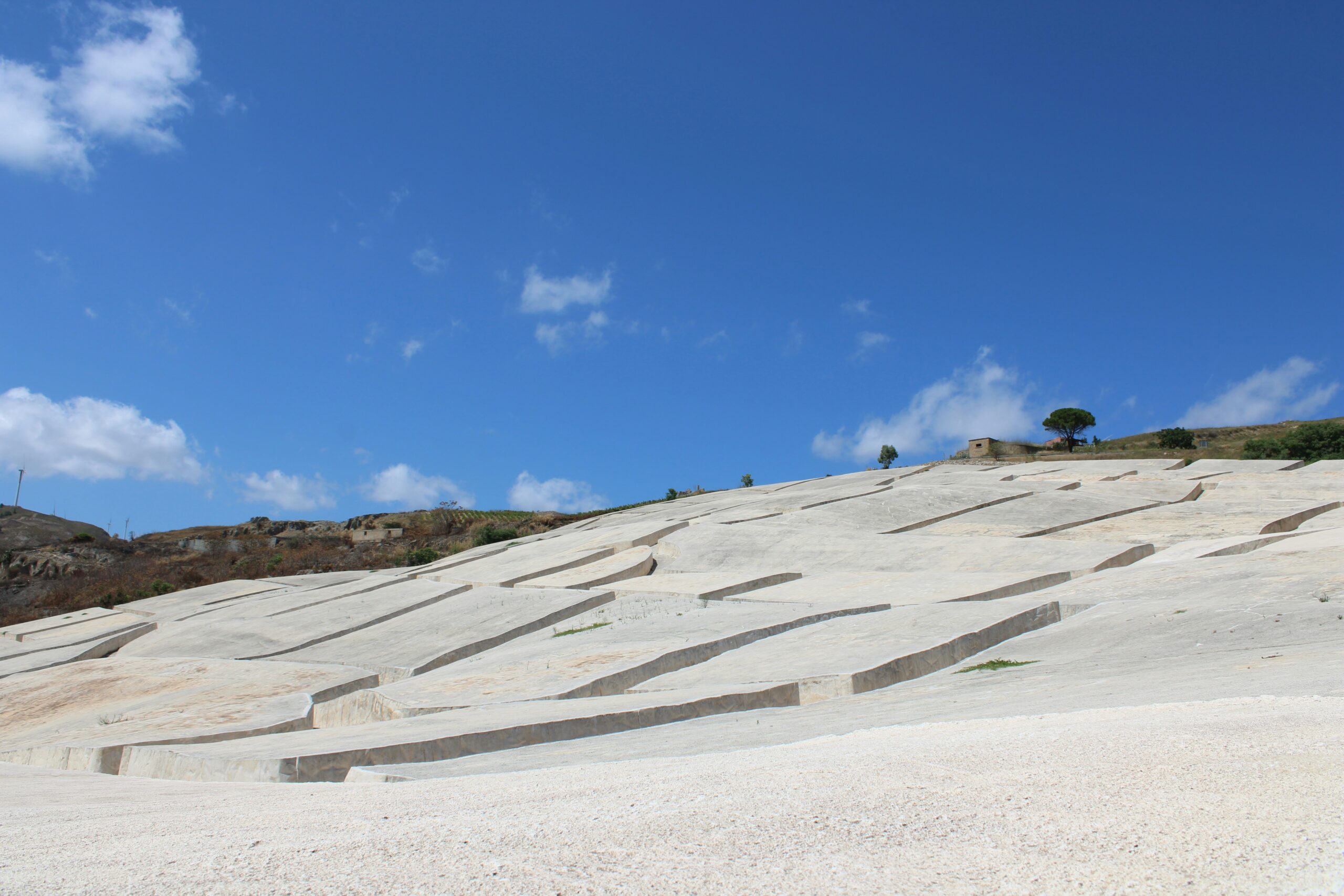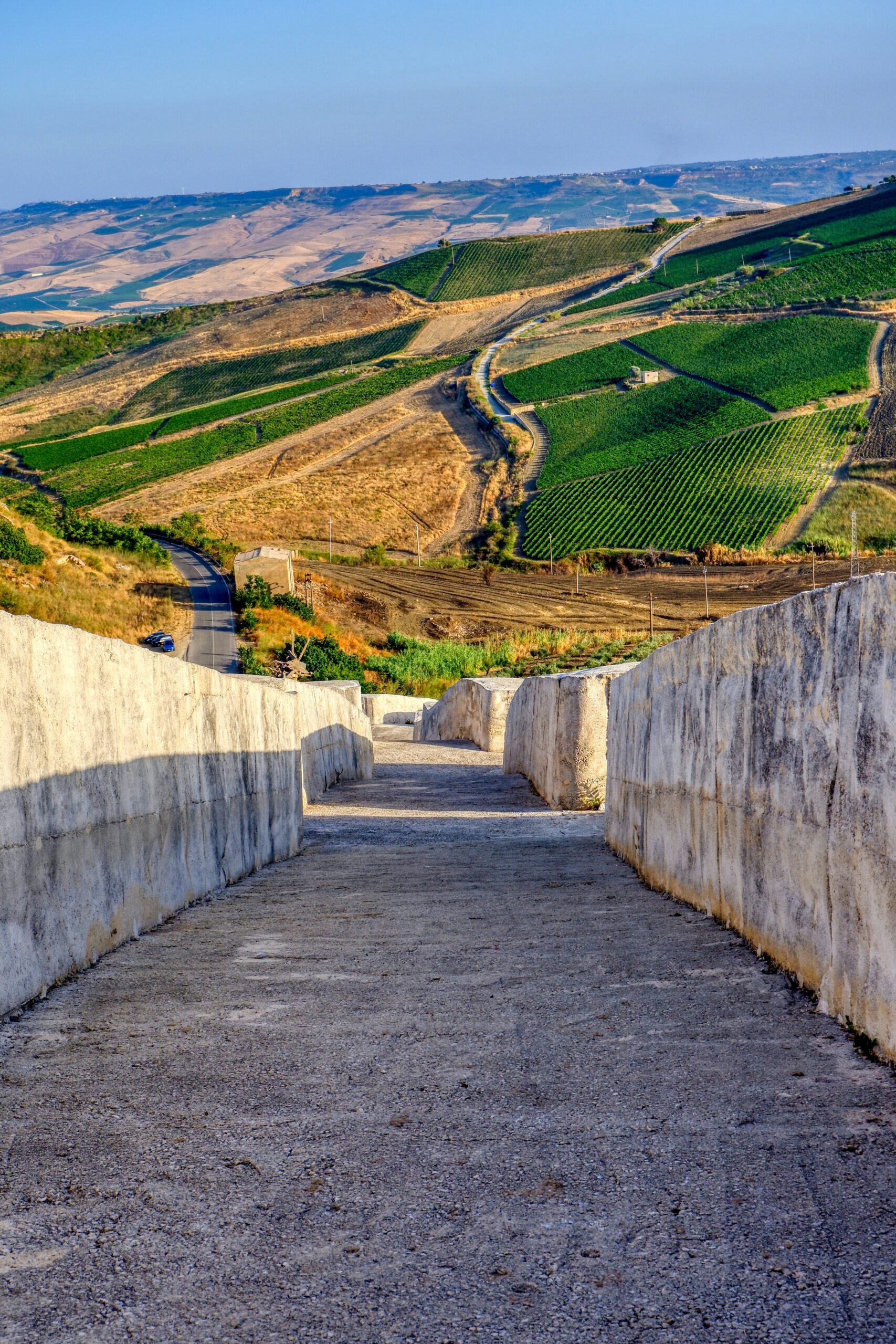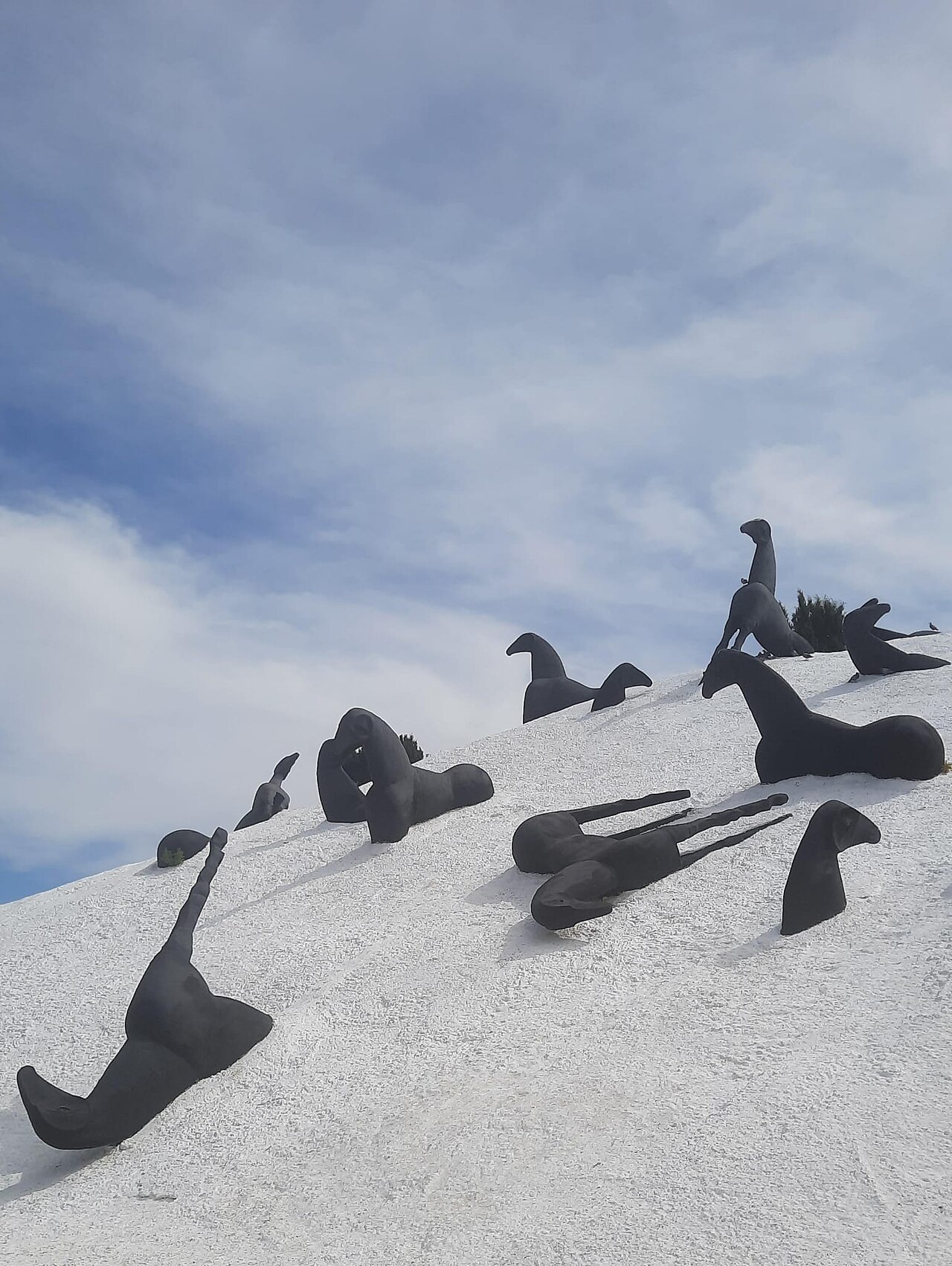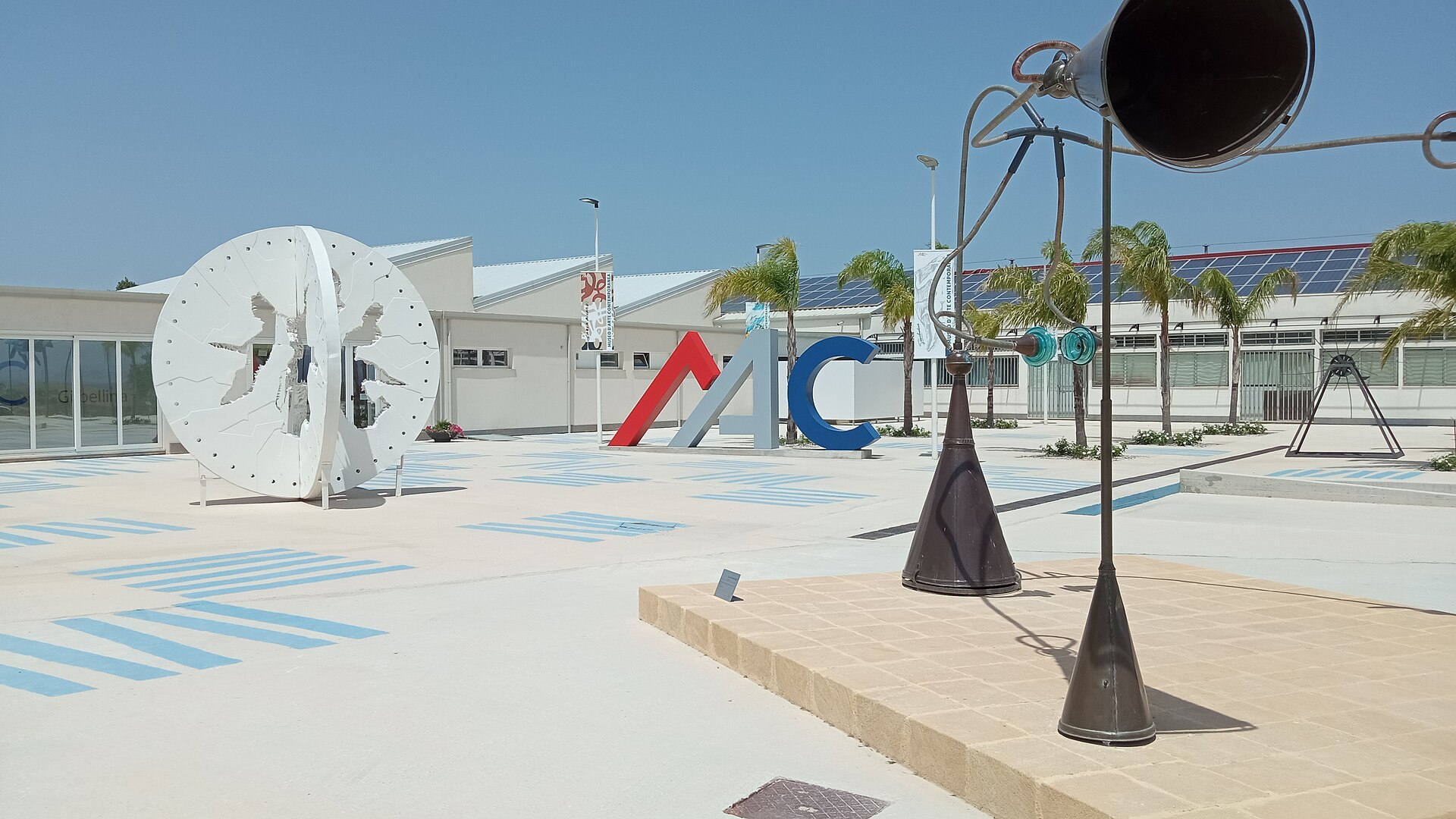History
According to some historians, it was founded by Arabs in the early Middle Ages. The name is supposed to derive from the Arabic Gebel (Mountain, Altura) and Zghir (Small); the full name, therefore, means “small mountain”, or “small hill”.
Gibellina was destroyed by the Belice earthquake in 1968. The current inhabited center takes the name of Gibellina Nuova.

Photo of the Cretto di Burri, by Francesco Labita on Unsplash
For the reconstruction of the town, the former mayor of the town Ludovico Corrao had the enlightened idea of “humanizing” the territory by calling several world-famous artists such as Pietro Consagra and Alberto Burri into Gibellina; the latter refused to insert one of his works in the new urban context that was being built and built the Cretto di Burri, or Grande Cretto, on the old Gibellina, in memory of the earthquake that destroyed it. Mario Schifano, Andrea Cascella, Arnaldo Pomodoro, Mimmo Paladino, Franco Angeli, and Leonardo Sciascia also responded to the mayor’s appeal. The city immediately became an immense laboratory of experimentation and artistic planning, in which artists and valuable works renewed the urban space according to an innovative perspective.
Attractions
Here are some of the main attractions in Gibellina.
The Cretto di Burri or Cretto di Gibellina is the name by which the Grande Cretto is colloquially known, a work of environmental art created by Alberto Burri between 1984 and 1989 in the place where the old city of Gibellina stood.

Photo of the Grande Cretto, by Antonio Sessa on Unsplash
The Museo delle Trame Mediterrenee, managed by the Fondazione Orestiadi, today represents an unprecedented and open interpretation of the cultural history of the Mediterranean.

Photo of the Montagna di Sale, by Marcello Di Fiore on Wikipedia
After the participation of many artists in its reconstruction, Gibellina is today a famous center for contemporary art. In this regard, it is possible to visit the Museo d’Arte Contemporanea (MAC), where the works of various Sicilian artists are exhibited, among which some of the aforementioned names stand out.

Photo of the Museo d’Arte Contemporanea, by Civa61 on Wikipedia
Food
This section will be reserved for its noteworthy wine production.
Gibellina is also famous for its wine production. In this regard, Tenute Orestiadi is the most important reality. It is a project that was born from the homonymous foundation, trying to enhance the most ancient traditions of the wine history of the area.
The fil rouge of the reconstruction is the close relationship between agriculture and art, which becomes the identity trait of the company.
